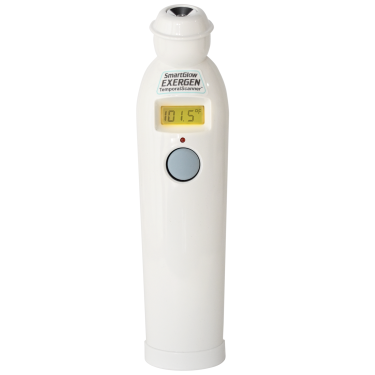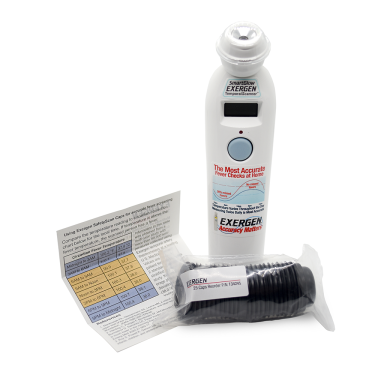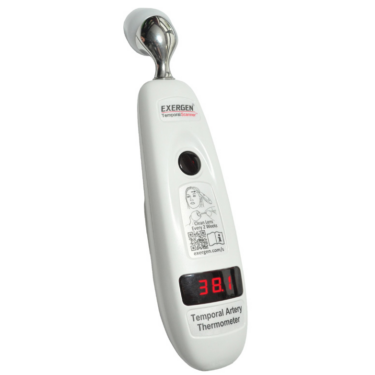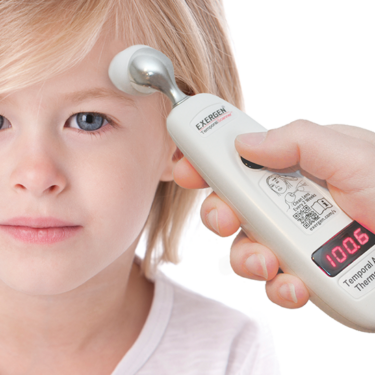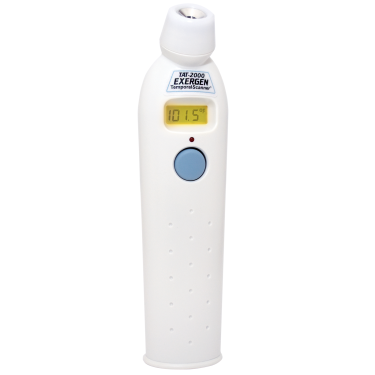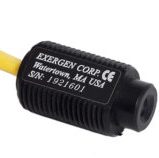When your baby has a fever, it can be a stressful experience. A warm forehead or flushed cheeks often leads parents to worry but fever is not always a cause for panic. In many cases, it simply means the body is doing its job and fighting off an infection. Still, knowing when a fever is harmless and when it’s a sign of something more serious can be tricky. That’s why accurate and regular temperature checks are an essential part of caring for an infant or young child.
Even a Mild Infection Can Become Serious Quickly
According to the American Academy of Pediatrics, a fever is generally defined as a rectal temperature of 100.4 degrees Fahrenheit (38 oC) or higher. For babies under two months old, any fever at or above this level requires immediate medical attention. At this age, even a mild infection can become serious quickly, and early detection is crucial.
Older babies and toddlers might run a fever for a variety of reasons. Most commonly, it’s caused by viral infections such as the common cold or flu. Occasionally, a fever might be the result of a bacterial infection like an ear infection or urinary tract infection. While teething is often blamed for a mild rise in temperature, it does not actually cause fever. Parents should also be aware that overdressing or spending too much time in a hot environment can cause a temporary spike in body temperature, but this is not the same as a fever caused by illness.
Monitor Your Child’s Temperature Twice Daily
One of the most important things caregivers can do is monitor the child’s temperature consistently. Pediatricians recommend checking at least twice a day when a baby appears unwell, especially in the morning and evening when body temperature tends to vary the most. This helps track whether the fever is going up, staying the same, or beginning to come down. It also gives doctors helpful information if a visit is necessary.
Using a reliable thermometer is essential for this task. Rectal thermometers remain the gold standard for babies under three months, but for quick, gentle, and non-invasive checks, forehead thermometers specifically those that scan the temporal artery—are a trusted option. Thermometers like the Exergen Temporal Artery Thermometer are widely used in hospitals, clinics and at home because they offer highly accurate readings with a simple swipe across the forehead by gently touching it. They are non-invasive and do not require the baby to stay still for long, which makes the process much easier for both child and parent. You can even take their temperature whilst asleep.
Fever is a Symptom, Not a Diagnosis
When a fever appears, it’s not always necessary to give medicine right away. If the child is otherwise alert, drinking fluids, and not in discomfort, it may be safe to watch and wait. However, if the fever climbs above 104 F (40°C), or if the baby becomes unusually sleepy, irritable, or shows signs of dehydration, it’s high time to call the doctor. Any child under three months with a fever should be seen by a healthcare provider without delay.
Fever is a symptom not a diagnosis. That means it’s a signal that something may be going on, but it doesn’t tell you exactly what. Monitoring your baby’s behavior, symptoms, and temperature over time is the best way to respond appropriately. For this reason, having an easy-to-use, accurate thermometer like the Exergen Temporal Artery Thermometer at home is not just helpful, it’s vital.
Especially during times when viral infections are circulating widely, checking your child’s temperature twice a day can make a real difference. It allows you to catch early signs of illness and act before symptoms become severe. In this context, a dependable thermometer like the Temporal Artery Thermometer isn’t just a convenience, it’s an essential part of your child’s daily health routine.
Fever can be scary, but with the right tools and knowledge, parents can respond confidently and calmly. When in doubt, track the numbers, observe your baby’s overall condition, and don’t hesitate to reach out to your pediatrician. Early awareness, supported by regular temperature checks, helps keep your child safe and healthy.
Source:
Healthy Children, https://www.healthychildren.org/English/health-issues/conditions/fever/Pages/Fever-and-Your-Baby.aspx
Exergen P/N: 850473
